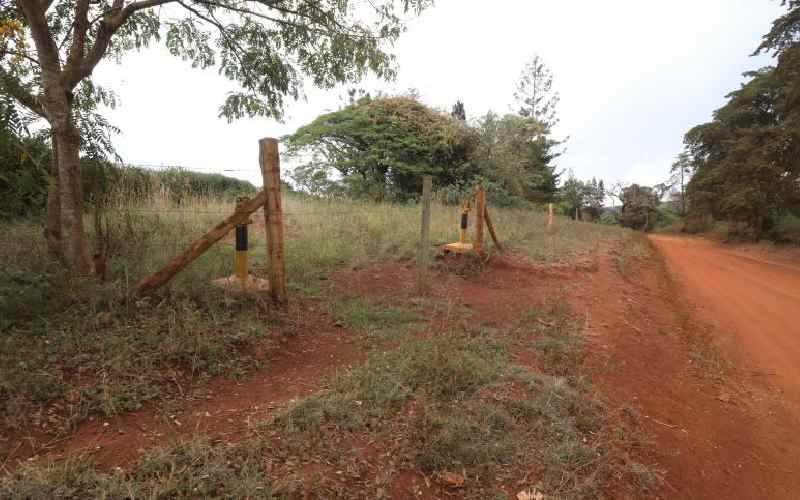×
The Standard e-Paper
Join Thousands Daily

According to residents of the villages located around the expansive Kakuzi land, this was once a road used by the public but it was closed by the company, forcing residents to travel further to access their homes and public amenities. [Mose Sammy/ Standard]
A company in the United Kingdom has been sued by 79 Kenyans following abuses employees of its subsidiary in Kenya suffered.